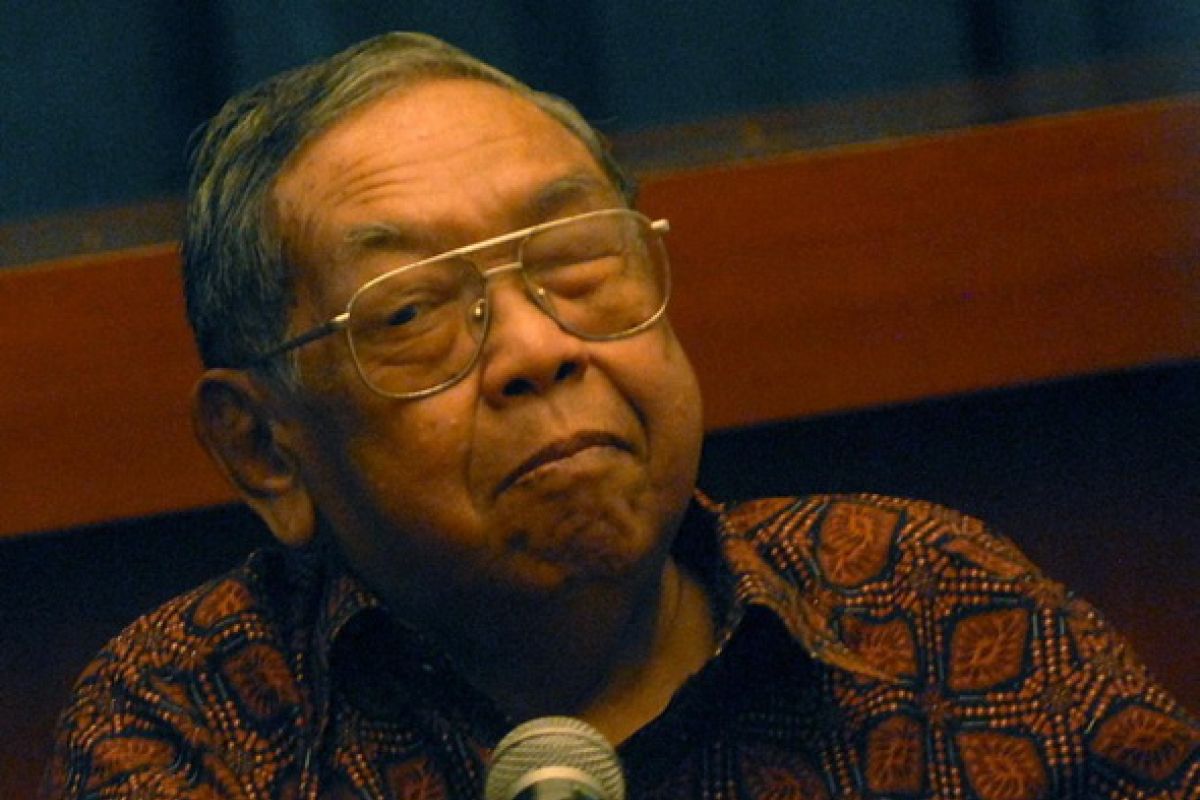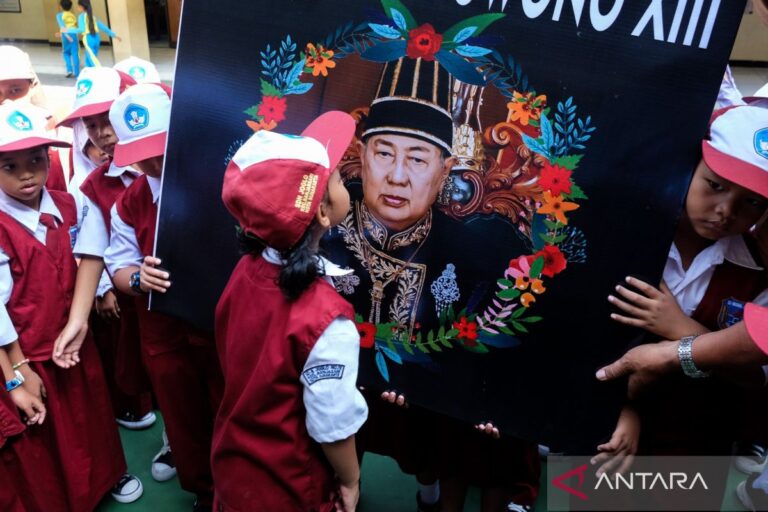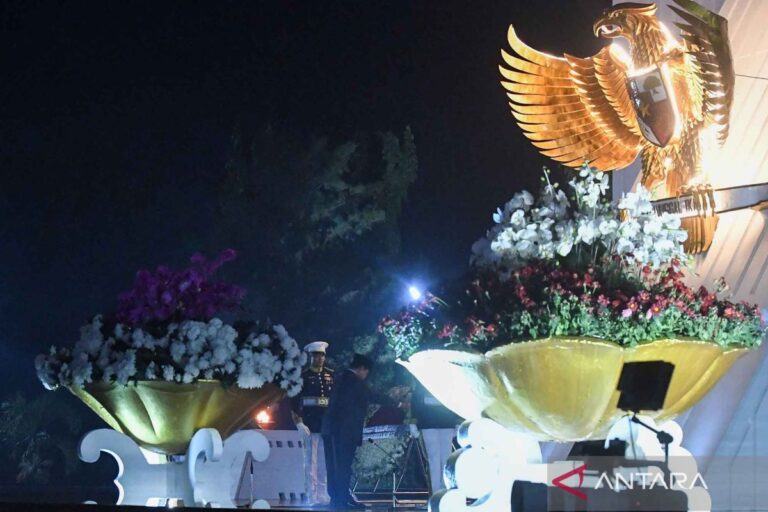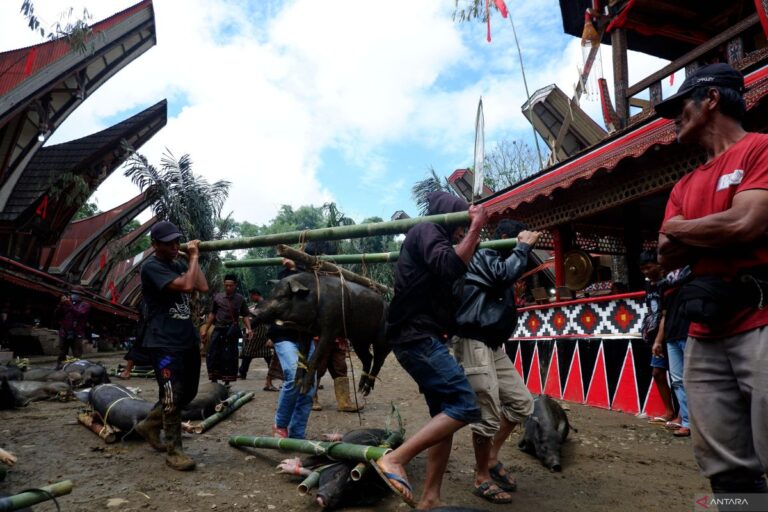
Jakarta (ANTARA) – As we approach the commemoration of Heroes’ Day on November 10, public attention is once again focused on the figures proposed for the title of National Hero.
As in previous years, this moment is a special one where the President of the Republic of Indonesia will nominate and announce the figures who are believed to have made great contributions to the nation and the state.
Minister of Culture and Chairman of the Council for Titles, Services and Honors, Fadli Zon, met with President Prabowo Subianto at the Presidential Palace in Jakarta on Wednesday (5/11).
During the meeting, he reported on the results of the council’s work, including discussions on potential recipients of the title of National Hero which is likely to be announced on the next Heroes’ Day.
While no official names have been announced, several individuals from various regions have been proposed as recipients of this year’s National Hero title. Below is a list of proposed names along with their work.
1.KH. Muhammad Yusuf Hasyim (East Java)
Known as Pak Ud, he is the youngest son of the founder of Nahdlatul Ulama (NU) and Tebuireng Islamic College, KH. Hasyim Asy’ari.
From a young age, this figure, born on August 3, 1929, joined Laskar Hizbullah as the commander of the Laskar Hizbullah Jombang company and took part in the November 10, 1945 battle in Surabaya. He was shot in the left chest during the war defending independence.
After the dissolution of Hezbollah, he joined the TNI with the rank of first lieutenant and actively participated in several important events, including the G30S/PKI. He also died on January 14, 2007.
2. Demmatande (West Sulawesi)
This Mamasa fighter is known as Daeng Matande. He was born in 1862 in Paladan.
Since the Dutch occupied his territory in 1907, he refused forced labor and led the population to fight the invaders.
As a result of its resistance, it became a colonial target. His house was sacked by the colonials, but he eventually died in the Battle of Mamasa.
3.KH. Abbas Abdul Jamil (West Java)
The son of the founder of the Buntet Islamic college, Cirebon, is known by the nickname Lion of West Java. He was born on October 25, 1879.
He led Laskar Hezbollah Cirebon as commander in the battle of November 10, 1945, then joined the TNI at the rank of lieutenant.
After leaving the military service, he devoted himself to the world of education as a teacher at the Madrasah Aliyah of Cirebon State and leader of the Buntet Islamic Boarding School founded by his father.
4. Marsinah (East Java)
The figure of this worker has become a symbol of the fight for workers’ rights in Indonesia. Born in Nganjuk on 10 April 1969, he actively fought for the welfare of the workers of the watch factory where he worked, namely PT Catur Putra Surya.
Marsinah was found dead in a hut in Wilangan village on May 8, 1993 with her body covered in wounds. To this day his name is remembered as an icon of resistance against injustices against workers.
5. Hj. Rahmah El Yunusiyyah (West Sumatra)
Born in Padang Panjang on December 20, 1900, Rahmah is known as a pioneer of girls’ education in Indonesia.
He is known as an academic figure, where he studied extensively self-taught and with his older brother. So he manages to balance religious and general knowledge.
With these provisions, she established the Madrasah Diniyah Li al-Banat in 1923, the Freubel School and Junior School in 1934, as well as the Diniyah School for Girls in Padang Panjang which became a model for girls’ education at that time.
Rahmah died on February 26, 1969 and left a great legacy in the world of Islamic education.
6. Abdoel Moetalib Sangadji (Malucca)
This Moluccan figure was born on 3 June 1889 and is known as a freedom fighter of noble descent who was active in the Islamic Sarekat trade and took part in the Second Youth Congress of 1928.
After the proclamation of independence, he spread the news of independence in Kalimantan and led Laskar Hezbollah to Yogyakarta. He also died during the first Dutch military aggression.
7. TNI General (Retired) Ali Sadikin (DKI Jakarta)
Born in Sumedang on July 7, 1927, Ali Sadikin is known as the governor of DKI Jakarta (1966–1977) who laid the foundation for the capital’s modernization.
Besides that, he was also a military officer in the Indonesian Navy and held several strategic positions.
During his time as governor of Jakarta, he expanded urban education, healthcare and infrastructure facilities, which at that time still had minimal access.
Although his policies often appeared controversial, his dedication made Jakarta more advanced and managed to increase regional income at the time.
8. Posthumous Lieutenant Colonel Charles C. Taulu (North Sulawesi)
This Kawangkoan fighter once led the resistance to the events of February 14, 1946 and arrested the Dutch leaders.
His actions with his troops managed to attract the attention of the world because they were broadcast on Radio Brisbane, Australia. This event has become a symbol that Indonesian independence applies to the entire archipelago.
9.Mr. Gele Harun (Lampung)
Lawyer and politician born in Sibolga on 6 December 1910, he played an important role in the formation of the province of Lampung. As a resident of Lampung (1950–1955), he was known for fighting for the aspirations of regional populations.
Later, when he became president of the Indonesian Youth Force (API), he took part in the second Dutch military aggression in 1948.
Subsequently he was also a member of the Constituent Assembly (1956 – 1957), and then became a member of the DPR in 1957. Once his mandate ended, he continued his career as a lawyer until his death on 4 April 1973.
10. Lieutenant Colonel Moch. Sroedji (East Java)
Born on February 1, 1915, Sroedji was a military figure who fought at Jember. He once joined PETA and played a role in the formation of BKR and TKR in Besuki’s home area.
During the battle against the Dutch at Jember on 8 February 1949, despite his weak condition, he continued to lead his troops and was eventually killed on the battlefield.
11. Prof. Aloei Saboe (Gorontalo)
This doctor from Gorontalo contributed to the struggle for independence and the defense of the Republic of Indonesia.
He was active in helping fighters by supplying medicines to the Dutch resistance in Gorontalo, NICA, the Permesta rebellion and the dissolution of the NIT.
Aloei Saboe also contributed to the fields of health and humanity until the end of his life on August 31, 1987.
12. TNI Marshal (retd) R. Suryadi Suryadarma (East Java)
Suryadi, born on December 6, 1912 in Banyuwangi, East Java, was a pioneer in the formation of the TNI Air Force after independence.
Although he suffered such discrimination during the colonial period that he was unable to become a pilot, in 1945 he managed to lead the formation of Air BKR and became the first chief of staff of the TRI AU.
13.KH. Abdurrahman Wahid (Gus Dur) (East Java)
Born on September 7, 1940 in Jombang, East Java, the 4th President of the Republic of Indonesia is known as a figure of pluralism and democracy.
Before becoming president, Gus Dur led the Nadhlatul Ulama Executive Board (PBNU) for 15 years, founded the National Awakening Party (PKB) and became one of the leading figures of the Reform.
His policies in maintaining diversity, tolerance and his fight for humanity have made him remembered as the “father of Indonesian pluralism”.
14. TNI Major General (ret.) Soeharto
Born on June 8, 1921 in Bantul, the second president of the Republic of Indonesia is known as the “father of development” and served the longest, namely for 30 years.
During his leadership period (1968-1998), Indonesia recorded significant progress in various fields, from economy, to education, to infrastructure.
Among other things, he played the role of mastermind of the merger of political parties in 1973, building monumental developments in his era, such as ASEAN, TMII, Jagorawi Toll Road, Soekarno-Hatta Airport, Family Planning Program and others.
Previously president, Suharto was a TNI officer who played a role in defending Indonesia’s independence and helped set the direction of national development. Indeed, Suharto received the rank of Great General.
Read also: Researcher: If heroes are measured by their impact, Suharto deserves to be valued
Read also: SOKSI advocates for Suharto to be given the title of national hero
Read also: Bahlil highlights Pak Harto’s services in transmigration programme
Reporter: Putri Atika Chairulia
Publisher: Alviansyah Pasaribu
Copyright © ANTARA 2025
Automatic retrieval of content, crawling or indexing by artificial intelligence on this website is strictly prohibited without written permission from ANTARA news agency.



